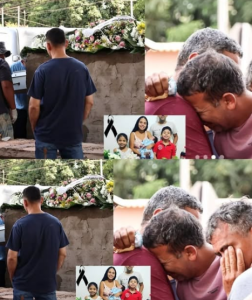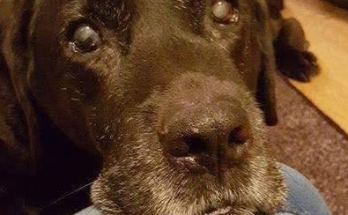
Father Needed Support During the Darkest Hour: A Story of Strength, Sacrifice, and Redemption
It was late November when everything started to unravel. The cold crept in early that year, not just into the bones of the old house, but into the heart of a family that had already weathered more storms than most. James, a father of three, sat quietly on the edge of his bed, staring at the worn wedding ring on his finger. His wife, Emily, had been gone for six months now—cancer took her swiftly, mercilessly—and every day since had been a battle to keep his family whole.
James had always been the strong one. The provider. The rock. But even rocks crumble when beaten long enough by grief and responsibility.
His eldest, 16-year-old Hannah, had begun skipping school. She was angry, withdrawn, and had started hanging around kids he didn’t recognize. Sam, his middle child, had gone silent. At 12, the boy rarely spoke more than a few words, retreating into a world of video games and comic books. And little Lily, just six, cried for her mother every night—sometimes waking up screaming, terrified and confused.
James was trying. God, he was trying.
He worked long hours at the factory and still came home to cook dinner, help with homework, and tuck Lily into bed. But there were moments—quiet, terrifying moments—when he’d lock himself in the bathroom, sink onto the cold tiles, and let the tears fall. He had no one to share the weight with. His parents were gone, his siblings scattered and distant. Emily had been his anchor, his safe harbor. Without her, he was adrift.
That December, things reached a breaking point.
One night, James came home to find the house in chaos. Hannah had thrown a party—alcohol, noise, strange faces. Sam had locked himself in the basement. And Lily was curled up on the stairs in her pajamas, sobbing.
James lost it.
He screamed. He threw a chair. For a moment, he didn’t even recognize himself.
When the dust settled and the guests had scattered, James stood in the middle of the living room, breathing hard. Hannah stared at him like he was a stranger. Sam wouldn’t come out. Lily wouldn’t let him near her.
He knew then he couldn’t do it alone.
The next morning, he walked into a family counseling center. His eyes were red, his voice hoarse. “I need help,” he said. “I can’t lose them.”
It was the hardest sentence he had ever spoken.
The counselor, a kind woman named Grace, didn’t judge him. She listened. Over the next weeks, James and his children began the slow, painful process of healing. Family therapy sessions cracked open wounds, but also allowed them to breathe. Hannah admitted she felt abandoned, that no one seemed to care how much she was hurting. Sam talked about how afraid he was to make his dad even more sad. Lily, through pictures and games, began to process the loss of her mother.
And James—he faced his grief. He admitted that he was drowning. That he missed Emily so much it hurt to breathe. That he felt like a failure.
But with help, he started to climb out of the dark.
Neighbors, who had once given him sympathetic nods from a distance, began to step in. Meals were dropped off. Offers were made to babysit. A friend from work came by one weekend to help fix the leaking roof James hadn’t had the energy to deal with.
Little by little, the weight began to lift.
Spring arrived. Lily stopped crying at night. Sam joined the school’s robotics team. Hannah, still rebellious but softer now, came home on time and even helped with dinner. And James? He smiled again—real smiles that reached his eyes.
He still missed Emily. He always would. But he had learned a powerful truth: even the strongest people need support. And asking for help wasn’t weakness—it was the beginning of healing.
One evening, as they sat around the dinner table, Lily looked up and said, “Mom would be proud of us.”
James choked up. “Yeah,” he whispered. “She would.”
That night, as he tucked Lily into bed, she reached up and touched his face. “I love you, Daddy.”
“I love you too, sweetheart. More than anything.”
James walked back to his room, sat on the edge of his bed just like he had months ago—but this time, his heart was lighter. The storm hadn’t passed, not completely. But he was no longer alone in it.
And that made all the difference
